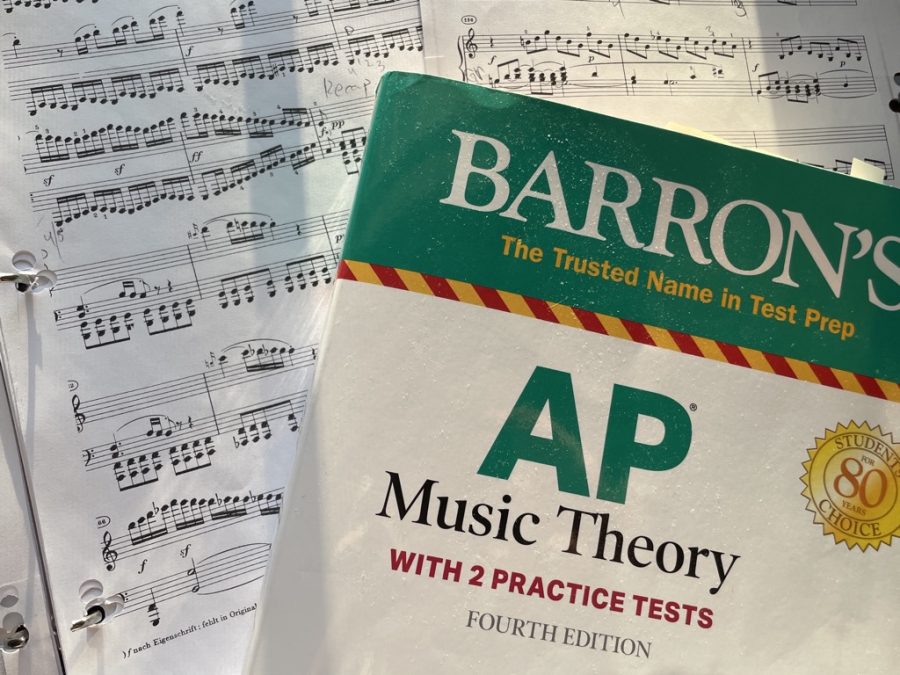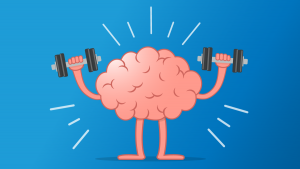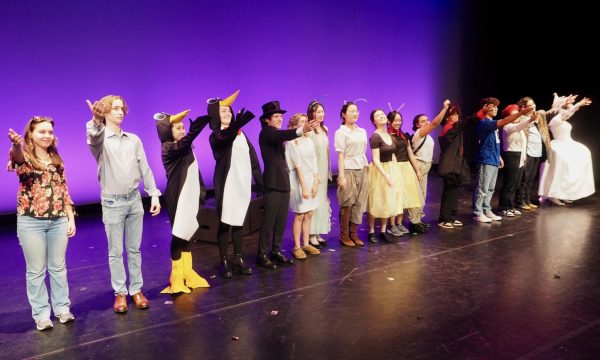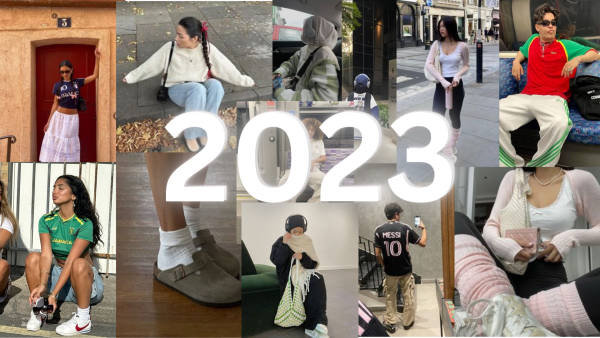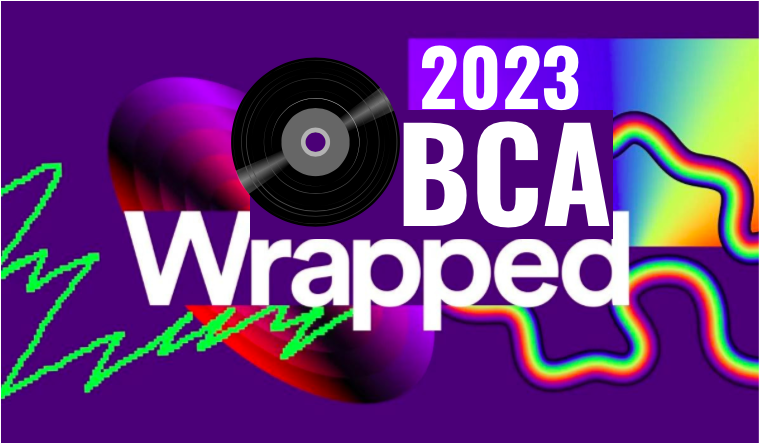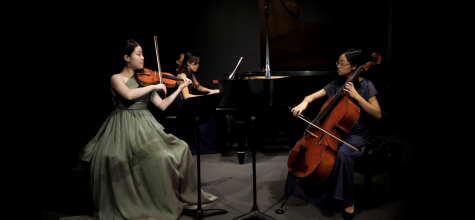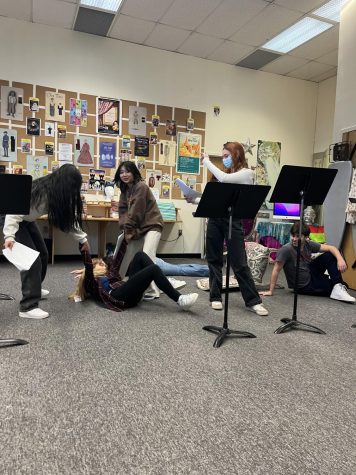AP Music Theory: The Most Deceiving AP of Them All?
June 7, 2023
On May 12th, 2023, twenty-one students took the AP Music Theory exam.
AP Music Theory is one of the more obscure AP classes that high school students at BCA have the option of taking. Each year, students often stress over the notoriously difficult AP Chemistry or AP Calculus – but what exactly is AP Music Theory?
Music theory – the study of how music is formed, analyzed, and understood – is far from simple. Besides having a basic understanding of music, the course delves into compositional part writing, sight singing, listening for musical elements within a piece, and more.
A class mandatory for AVPA-M sophomores, many students in other academies took part in the course this year as well. This year, there were twenty-one students in total – ten AVPA-M students and eleven non-AVPA-M students – making this year’s class one of the largest classes to take AP Music Theory here at BCA.
Students came into the course with varying levels of prior knowledge in music theory. “I didn’t have any experience in music theory, but I played the flute since third grade and took piano lessons before that,” said Charmitha Yellampalli, a senior in AAST.
Chloe Cho, a sophomore in AVPA-M, had a similar response. “For music theory, I never had any background experience, because I never went to any pre-college; I just had a teacher that I would go to often.”
Charmitha noted, “I guess I have more experience with the application of music, but not the theory behind it.” Indeed, many students taking the course were skilled musicians but had not received formal training for music theory.
Others, however, have been going to pre-college for several years. In the AVPA-M sophomore class, 60% of the students attend a music pre-college every Saturday during the school year, where music theory as well as ear training are taught.
Yet, the AP Music Theory exam covers a wide range of skills and topics that students must practice throughout the year in order to succeed, whether they attend pre-college or not. Unlike other AP tests, the AP Music Theory exam’s first section is a 45-question multiple-choice listening section, where students listen to multiple excerpts and answer questions regarding the excerpts and tracks played in a fast-paced manner.
“Cramming never works,” said AVPA-M sophomore Danni Adcock when referring to the multiple-choice aural section. “Your eyes, ears, and brain all have to be one. You see something on the page, then you hear something with your ears, and then your brain has to know what it is.”
This, however, is only the start of the many challenges ahead on the exam. In a recent survey, 66.7% of AP Music Theory students at BCA voted this section of the exam to be the easiest. After a second non-aural section of the exam containing multiple-choice questions about musical analysis, the difficult free-response section begins.
Starting with two melodic dictations – recordings where students are given three to four hearings to write down all of the notes played on a musical track – students face their first challenges. The debate always rises in the musical world as to whether or not perfect pitch gives students an unfair advantage or not during this section.
“When I hear something, I know the note automatically,” said Chloe. This summarizes perfect pitch: at any given time, a person with perfect pitch can tell exactly what note is being played.
“On the written portion, [perfect pitch] doesn’t really matter that much, but for the dictations, it definitely makes it a lot easier,” added Charmitha.
Though it may seem easier for students with perfect pitch to answer the melodic dictation free responses, Danni had a different perspective. “On the test, it doesn’t seem like perfect pitch will play a major role. Especially with how we learned it in class.”
Indeed, Mr. Spinelli, the AP Music Theory teacher, taught students multiple techniques to tackle the melodic dictation section without having perfect pitch. According to a recent survey, 80% of this year’s AP Music Theory students at BCA reported to not have perfect pitch.
“I heard that a bunch of people can get a 5 on the exam,” said Danni, “though I doubt that every single one of these people with a 5 have perfect pitch.”
After the melodic dictations come harmonic dictations. Though similar in name, harmonic dictations are much more complex than melodic dictations. While melodic dictations are played with one note at a time, harmonic dictations consist of chord progressions, where students must identify the soprano line, bass line, and the corresponding Roman numerals indicating the position in relation to the key of the chord progression.
“It’s really hard for me to pick out the individual soprano and bass, and when it asks which chord it is, it’s hard for me to understand which one it is,” said Charmitha. 80% of AP Music Theory students in BCA agreed that the harmonic dictations were the hardest part of the exam.
“You definitely need to have really good listening skills,” Charmitha continued. “And you need to have the mental fortitude to sit down and actually practice these things, like the practice tests and dictations.”
Luckily, the challenging dictations are followed by two free response questions that cover four-part writing, which the majority voted as the easiest section of the free responses. Since December, Mr. Spinelli has been training his students to write four-part harmonies in 18th-century style, which is required on the exam.
Many courses at music pre-colleges such as Manhattan School of Music and the Juilliard School cover four-part writing techniques as well, making this section of the free responses somewhat easier than the other sections. After a final composition section, students are almost finished with the exam.
The last part of the exam is the most unique – and daunting. Students are given seventy-five seconds to practice a singing melody that they have never seen before, then record it to be scored by the College Board.
This year, the AP Music Theory students of BCA gathered in the college center and waited anxiously to be called to the counseling department to record the sight singing portion of the exam. Since only two counselors were recording students one at a time, the process took hours to complete.
Juniors, who had Junior Prom that same night, had the priority and went first. They were followed by the AVPA-M sophomores, and finally, the three seniors. After a long six hours of testing and waiting for sight singing, everyone successfully finished the 2023 AP Music Theory exam.
In reflecting on the course, Danni said, “I’d say [AP Music Theory] was even better than I expected. I was a little nervous about it being an AP course, but also excited because it’s music!”
In the future, Danni has plans to continue music. “Hopefully, I will be able to double major. Definitely to colleges, I will audition for bassoon. Career wise, I want to do voice and get trained for that as well.”
In contrast, Charmitha will be pursuing a biomedical engineering degree and will also be studying economics next year.
Despite the different complexities presented by AP Music Theory, everyone learned a lot this year about the true depth of music. Whether or not students will pursue music in the future, AP Music Theory provides an important skill set that allows students to think differently about solving problems. Good luck to all AP students this year and for years to come!

